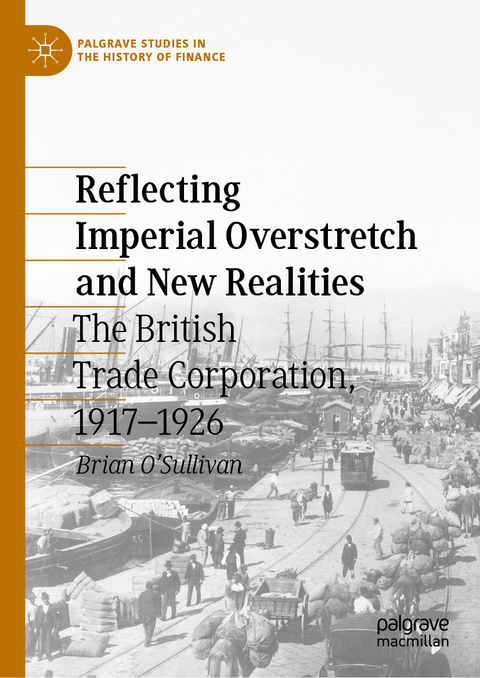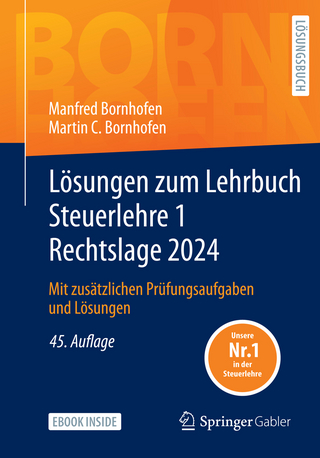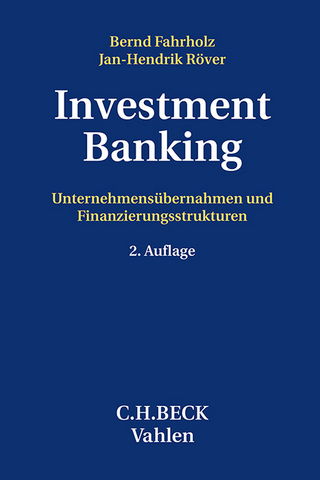
Reflecting Imperial Overstretch and New Realities
Springer International Publishing (Verlag)
978-3-031-58302-5 (ISBN)
This book is the first comprehensive history of the British Trade Corporation, which was constituted under a Royal Charter on 21st April 1917. Its charter was meant to last for sixty years, but in 1926, after a turbulent existence of only nine years, it was amalgamated with the Anglo-Austrian Bank, and absorbed into the Anglo-International Bank.
The corporation together with its two main subsidiaries, the Levant Company and the National Bank of Turkey, conducted business not only in Britain but in Russia, Turkey, the Middle East and in Continental Europe. Although the corporation was not an agent of empire, it reflected Britain's imperialistic ambitions after the First World War. As a result, it invested in some of the most unstable regions of the world. It was also severely affected by British foreign policy, which was often misjudged and, at times, duplicitous, resulting in serious damage to British trade. Within five years of its launch, the British Trade Corporation needed to be refinanced. The economic downturn in the early 1920s and ongoing hostilities in Eastern Europe and the Near East meant that it struggled to survive. Its difficulties reflected many of those faced by Britain in general after the war and the need to come to terms with the new realities of the post-war world.
Despite its innovative attempt to address the perceived deficiencies in Britain's financial system, especially in respect of industrial finance, the British Trade Corporation has been largely ignored by financial historians. Based on substantial archival research, this book rectifies this neglect and makes an important contribution to the financial history of interwar Britain.
Brian O'Sullivan is a Visiting Research Fellow at King's College, London. His book From Crisis to Crisis: The Transformation of Merchant Banking, 1914-1939 (Palgrave, 2018) was jointly awarded the BAC Wadsworth Prize in 2019. Brian has held senior roles in a number of financial institutions and is a Fellow of the Institute of Chartered Accountants and of the Royal Historical Society.
Introduction.- Part I. Emerging Champion.- Chapter 1. Winning the Peace.- Chapter 2. British Trade Bank.- Chapter 3. Finance and Industry.- Chapter 4. Dash for Growth.- Part II. Merchant Adventurer.- Chapter 5. Russia.- Chapter 6. Turkey.- Chapter 7. Middle East.- Chapter 8. Continental Europe.- Part III. Road to Obscurity.- Chapter 9. Reconstruction.- Chapter 10. Home Front.- Chapter 11. Struggle for Survival.- Chapter 12. Reverberations.- Conclusion and Appendices.
| Erscheinungsdatum | 05.07.2024 |
|---|---|
| Reihe/Serie | Palgrave Studies in the History of Finance |
| Zusatzinfo | XX, 534 p. 17 illus., 9 illus. in color. |
| Verlagsort | Cham |
| Sprache | englisch |
| Maße | 148 x 210 mm |
| Themenwelt | Wirtschaft ► Allgemeines / Lexika |
| Wirtschaft ► Betriebswirtschaft / Management ► Finanzierung | |
| Schlagworte | Anglo-Austrian Bank • Anglo-German financial relations • British Empire • british trade • British Trade Bank • British Trade Corporation • Decline of the British Empire • Finance after World War One • Financial history of First World War • German finance after First World War • Global Finance after the First World War • Imperial Overstretch • Industrial finance • the Levant Company • World War One |
| ISBN-10 | 3-031-58302-7 / 3031583027 |
| ISBN-13 | 978-3-031-58302-5 / 9783031583025 |
| Zustand | Neuware |
| Haben Sie eine Frage zum Produkt? |
aus dem Bereich


